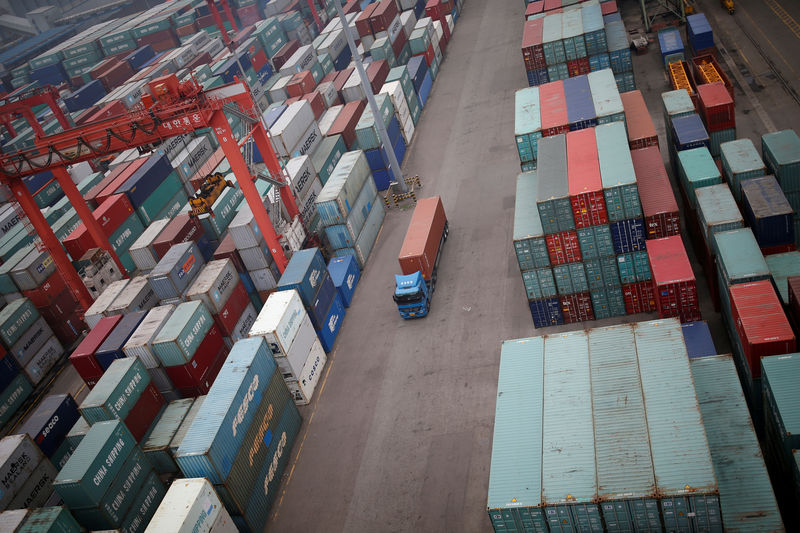By Joori Roh
SEOUL (Reuters) - South Korean exports were seen contracting for the tenth consecutive month in September, although at a slower pace, as the U.S.-China tariff war continued to drag and uncertainty remained over a recovery in the semiconductor sector.
Shipments in September were forecast to fall a median 11.2% from a year earlier, according to a survey of 11 economists, slightly better than a 13.8% fall in August, which was the worst decline since January 2016.
"It may take quite some time for exports to make a significant rebound," said Ma Tieying, economist with DBS Bank. "We currently look for marginally positive export growth in the first half of 2020."
The majority of economists said uncertainties about the timing of an anticipated breakthrough in the U.S.-China stand-off and of a recovery in the semiconductor sector continued to be risks to the domestic economy.
United States and China trade negotiators are expected to meet in Washington next month, while Japan announced last month it would allow exports of some semiconductor manufacturing materials to South Korea.
The Reuters poll estimated that imports to South Korea, Asia's fourth largest economy, would decline 3.0% this month from a year earlier.
The economists saw South Korea's consumer price inflation dipping a median 0.3% in September, that would be slightly worse than the flat result in August and the first negative reading since inflation data release began in 1965.
The Bank of Korea (BOK) currently sees this year's annual inflation at 0.7%, far below its 2% target. The bank slashed this year’s economic growth forecast to 2.2% in July, but that is still far above projections by private-sector organizations, which are as low as 1.4%.
The BOK is widely expected to lower rates at its next meeting on Oct. 16, after holding fire at its last meeting in August. The central bank surprised markets with a cut in July, the first reduction in three years.
S&P Global Ratings chief economist Shaun Roache told Reuters on Wednesday that deflation pressure was the biggest domestic risk facing South Korea's economy, adding that he expected two more rate cuts by early next year.
The Reuters poll also expects industrial output in August to have contracted by a seasonally adjusted 0.5% from a month earlier.
August industrial output data will be released at 8 a.m. on Monday local time (2300 GMT Sunday).
September trade data is due to be published at 9 a.m. on Tuesday (0000 GMT) while inflation figures are expected an hour earlier (2300 GMT Monday).
